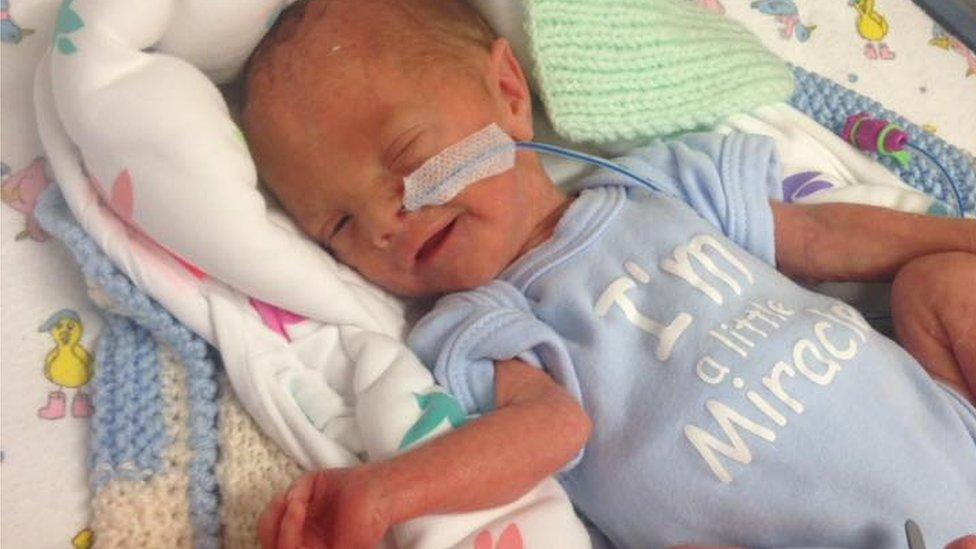Premature babies: Parents need better mental health support
- Published
Seeing premature baby in incubator 'very scary'
When Ceri Roberts first saw her newborn son, it was not the moment she had been expecting.
Seth was nine weeks' premature and wrapped in a bundle of tubes, wires and an oxygen mask inside an incubator.
"It was a rollercoaster of emotions," said the 35-year-old.
A neonatal charity is now asking for better support for parents to help them deal with the stress and strain of having an early birth.
Seth, now six, is healthy and enjoying primary school, along with his brother Aron, four, who was also an early arrival.
Aron arrived at 35 weeks, after two interventions by specialists when Ceri went into labour first at 27 weeks of her pregnancy.
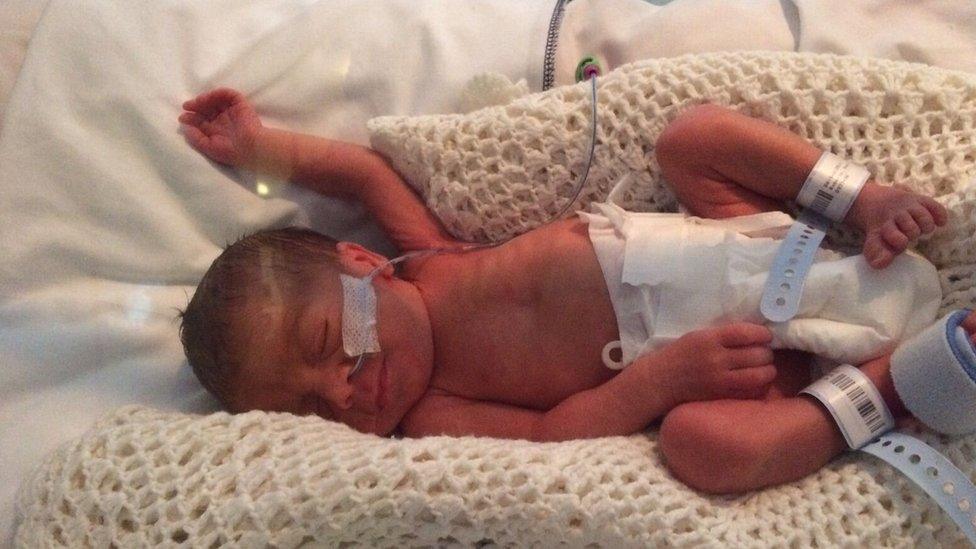
Having premature baby is a "rollercoaster of emotions" says the mother of Seth Roberts - born nine weeks early
"I felt the pregnancy and labour and having Seth and Aron born early, spending time in hospital, was difficult and different to my friends and family who have children," said Ceri, who lives with husband Elis near Bangor, Gwynedd.
"They were able to come home, people could come to the house to see them, whereas we were in hospital, with visiting hours.
"When Seth was in the high dependency unit for a couple of weeks it was only the grandparents who could come to see him.
"So that was very difficult."
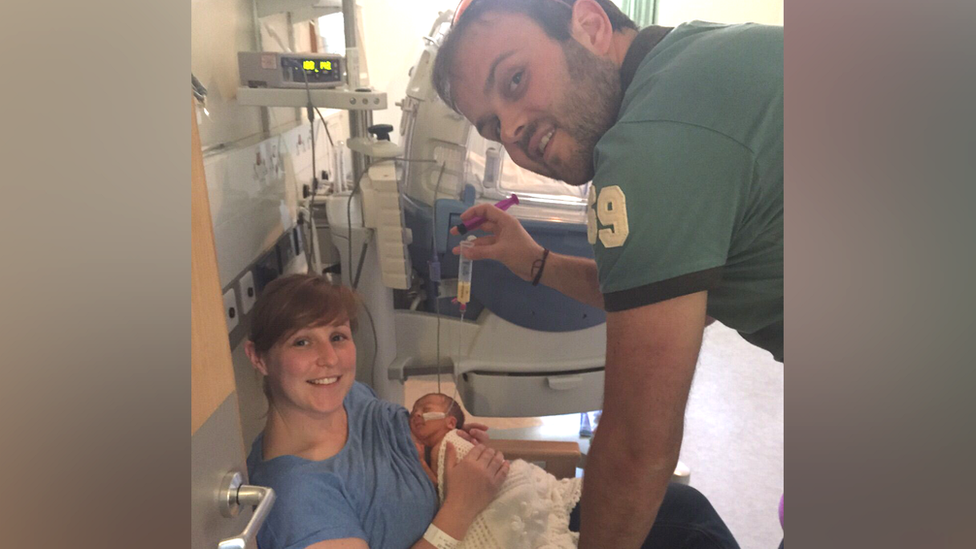
Just being able to hold Seth was a special moment for Ceri and Elis
Ceri and her husband spent two months living in family accommodation at the hospital.
"When I first saw Seth, he was a little bundle in a massive incubator, with all the tubes and masks and wires. It was very, very scary," said Ceri.
"I was over the moon that I had a son, and I wanted to share that with the world.
"But then there was the worry. Is he going to be OK? Are there any problems?"
Hitting milestones were important.
"We celebrated when he was able to sleep without an oxygen mask, or when I was able to put clothes on them for the first time.
"Small milestones like that were massive achievements for us as a family, and for Seth."
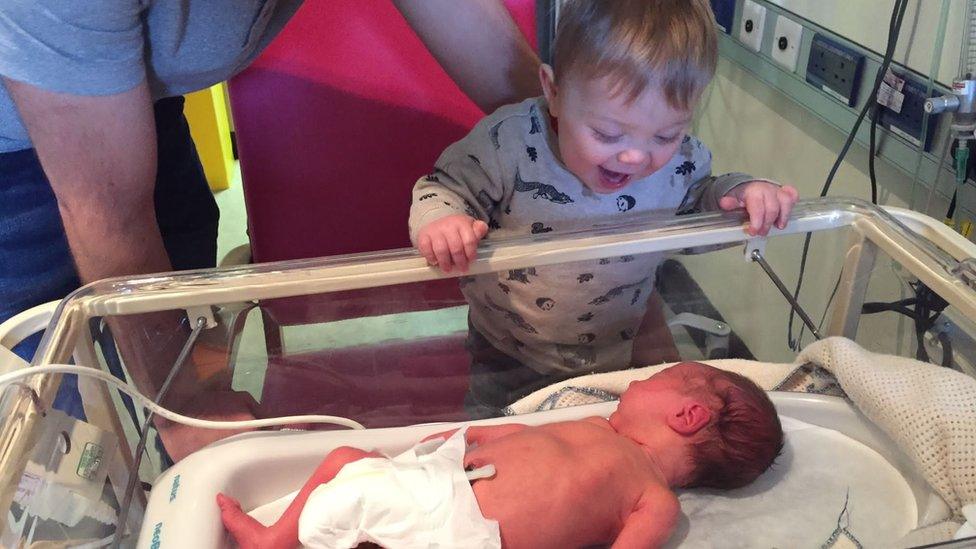
Meeting his brother: Seth sees Aron in an incubator at Glan Clwyd Hospital
Ceri praised the medical support they received for both sons but says there are wellbeing gaps for other parents with premature children.
"There aren't the parent and children clubs or baby groups for those who have been through what I've been through," she said.
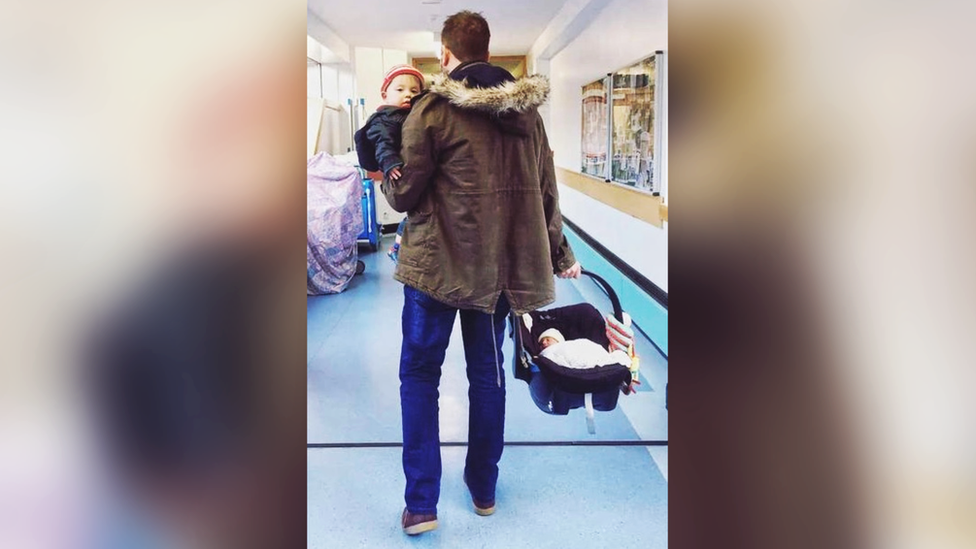
Time for Aron to leave hospital and return home with brother Seth
Figures show 2,800 babies needed neonatal care in Wales in 2020.
The charity Bliss said about 2,400 babies needing help are born early, which is about 8% of all births in Wales.
But the charity said psychological support for parents is "patchy".
"When a baby is born premature or unwell and in need of neonatal care, parents often described to Bliss that their world has been turned upside down," said policy and research manager Josie Anderson.
"It places a huge amount of stress and anxiety on families."
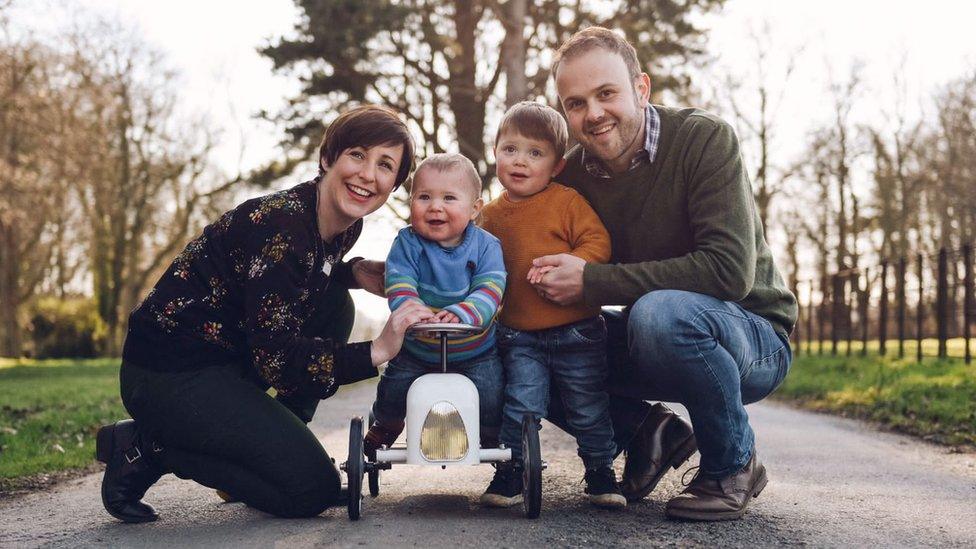
Ceri and Elis Roberts' two sons are now fit. lively, young children
The charity said those who have experienced a premature birth could be more likely to have post-natal depression, or develop post-traumatic stress symptoms.
"The long-term ramifications for families can be really devastating."
Bliss has been working with NSPCC Cymru to push for better mental health and wellbeing support in Wales, with the matter raised this week in the Senedd to mark World Prematurity Day.
First Minister Mark Drakeford said he had seen first hand during his time serving as health minister the impact a premature birth can have on parents and it was a "deeply distressing experience for many of them".
"There are Royal College standards in this area, which every health board is working to meet, and where new funding has been made available by the Welsh government to assist them in doing so," he told the Senedd.
"Improved access to psychological therapies remains a priority for service improvement funding in this area."
Related topics
- Published14 February 2021
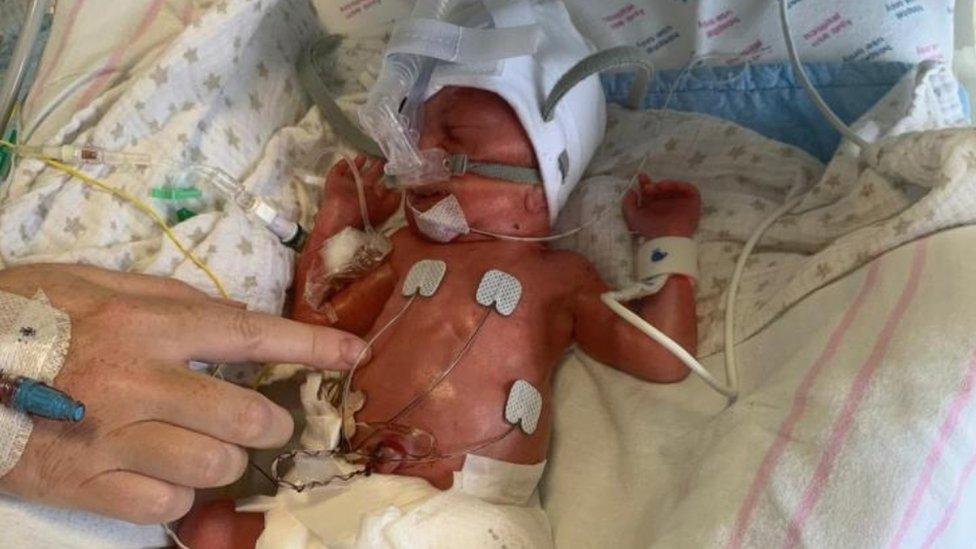
- Published20 May 2020
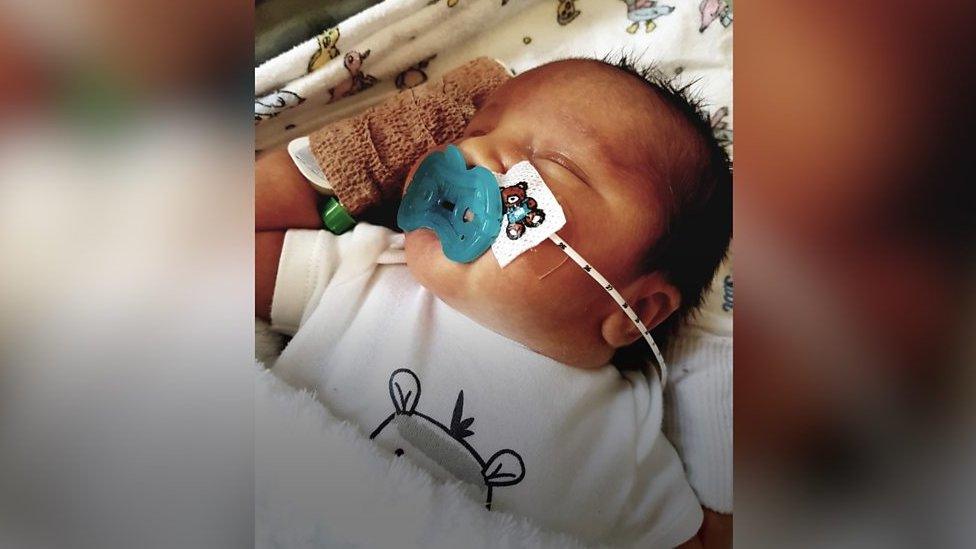
- Published19 April 2019
